- Media concentration / Conglomerates – A large bussiness or company, a combination of multiple bussiness entitles operating in entirely different industries under one main group/ bussiness.
- Globalisation (in terms of media ownership) – Media globalisation is the combination of media through the cross-cultural exchange of ideas.
- Vertical Integration – A larger company/ conglomerate that aquires a smaller company in the same industry.
- Horizontal Integration – The aquisition of a bussiness/ company which is operating at the same level of value as the bussiness/ company/ chain in a similar or different industry.
- Gatekeepers – Gatekeeping is the process through which information is filtered for spreading, whether for publication, broadcasting, the internet or some other mode of communication. Somone who holds power and can control the flow of information.
- Regulation – Regulation is an abstract concept of management of complex systems according to a set of rules and trends. Regulation of monopolies throught police or government. It is hard to regulate new media companies – Google, Facebook and Amazon.
- Deregulation – The removal or limit in government power over a particular industry, usually to create more competition within the industry.
- Free market – A free market economy is a type of economy that promotes the production and sale of goods and services, with little to no control or involvement from any central government agency. A free market economy is opposite to how a command economy works, where the central government gets to keep the profits.
- Monopolies & Mergers – ownership of different kinds of media (TV, newspapers, magazines, etc.) by the same group. Media mergers are a result of one media related company buying another company for control of their resources, successful media companies usually buy out other companies to reach a larger viewing audience in order to increase views and profit. Those in power of monopolies can gatekeep information/ data/ the product they own.
- Neo-liberalism – Reducing state influence in the economy, especially through privatization and austerity.
- Surveillance/ Privacy/ Security – Monitering/ Protection over data
- GDPR – The General Data Protection Regulation is a regulation in EU law on data protection and privacy in the European Union and the European Economic Area.
David Hesmondhalgh – The Cultural Industries
Work conditions in the media Industry.
‘There must be serious concerns about the extent to which this business-driven, economic agenda is compatible with the quality of working life and of human well-being in the creative industries.‘
His interests include the cultural and creative industries, cultural policy, the politics of musical experience, and how ‘cultural platforms’ are transforming media. His books include The Cultural Industries, first published in 2002
- Hesmondhalgh, D. (2017) ‘The media’s failure to represent the working class: explanations from media production and beyond’, in June Deery and Andrea Press (eds.), The Media and Class (New York: Routledge), pp. 21-37.
- Hesmondhalgh, D. (2016) ‘Exploitation and media labor’, in Richard Maxwell (ed), The Routledge Companion to Labor and Media, New York and Abingdon: Routledge, pp. 30-39.
- Hesmondhalgh, D. (2006) ‘Inside media organizations: production, autonomy and power’, in Hesmondhalgh, D. (ed.) (2006) Media Production, Maidenhead and Milton Keynes: The Open University Press/The Open University, pp. 49-90.
His suggests that cultural industry companies use =
Minimise risk + Maximise Audiences = Maximise Profit.
Hesmondhalgh has explored whether the cultural industries truly reflect the diversity of people and society.
Hesmondhalgh references Mosco (1996): “There is a difference between multiplicity – a large number of voices – and diversity – whether or not these voices are actually offering different things from each other.”
Cultural Industries = Film, television, radio, music, books and press. combine the creation, production, and distribution of goods and services that are cultural in nature
The Cultural Industries is an analysis of changes and continuities in television, film, music, publishing and other industries since the 1980s, and of the rise of new media and cultural industries during that time.
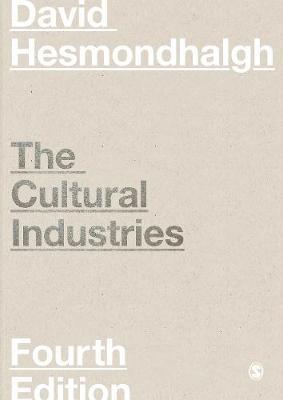
Rupert Murdoch – Media Empire –
Murdoch’s media empire includes Fox News, Fox Sports, the Fox Network, The Wall Street Journal, and HarperCollins. In March 2019, Murdoch sold the majority of 21st Century Fox’s entertainment assets to the Walt Disney Company for $71.3 billion. (Almost a monopoly over the conservative news industry in America)
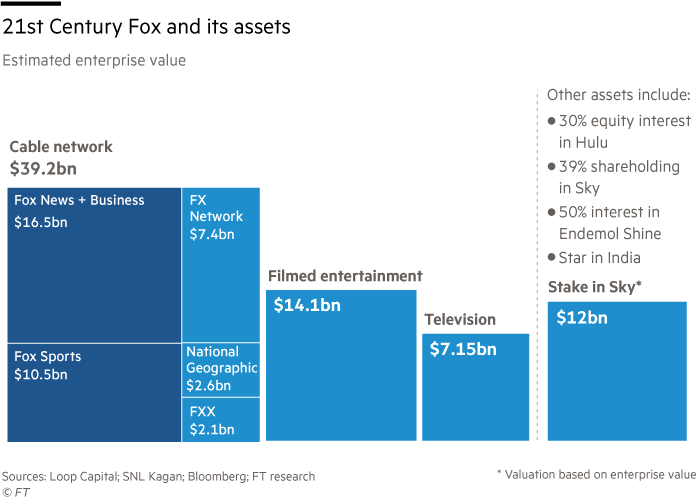

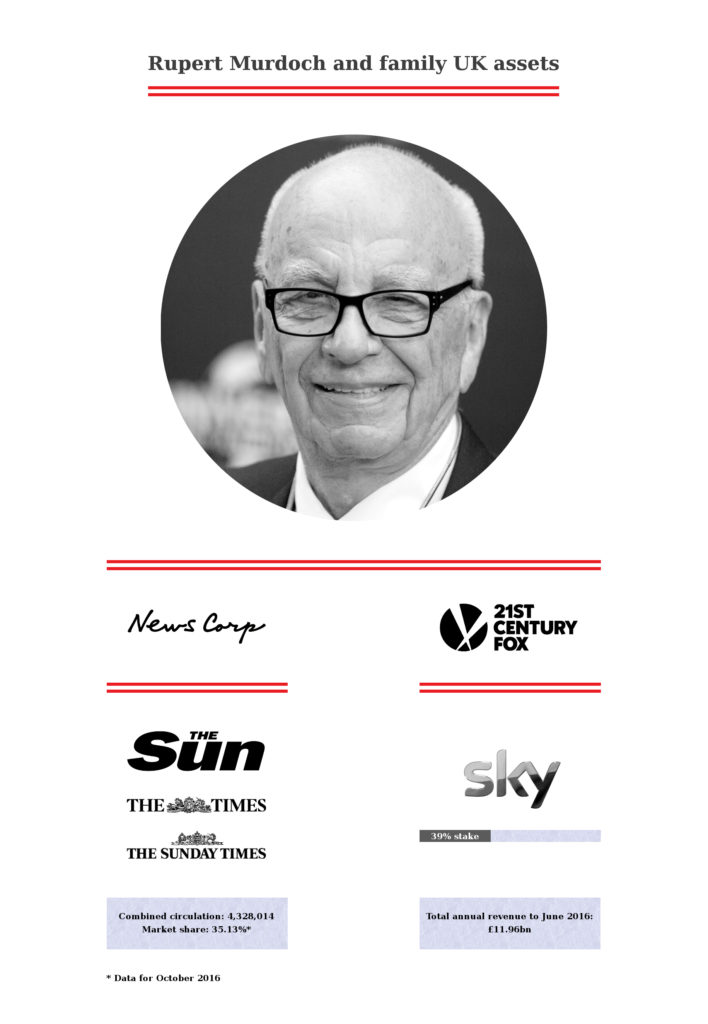
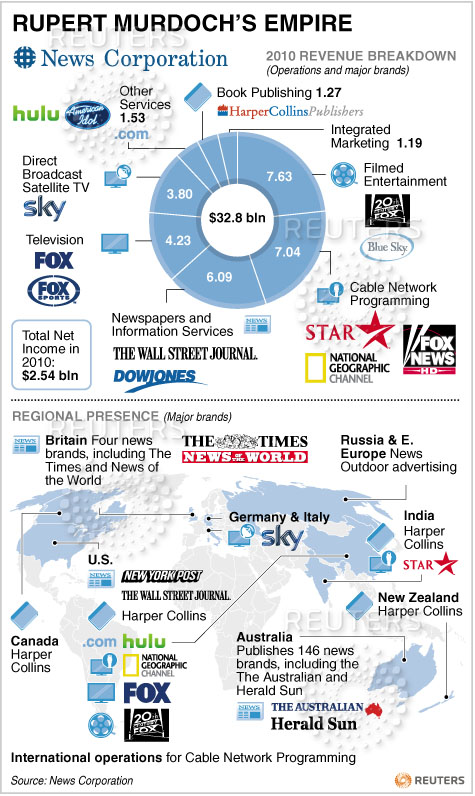
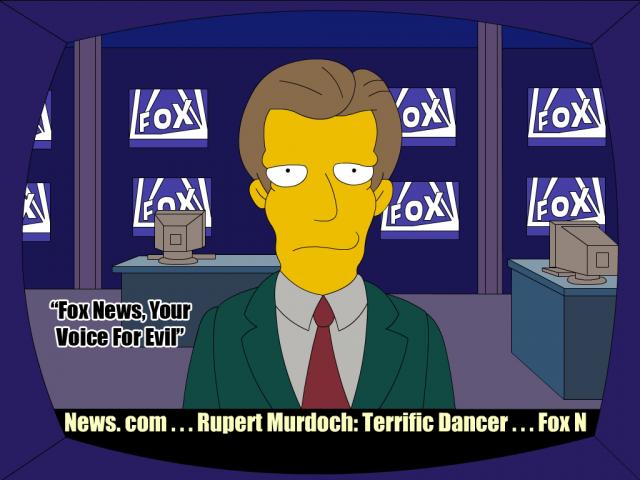
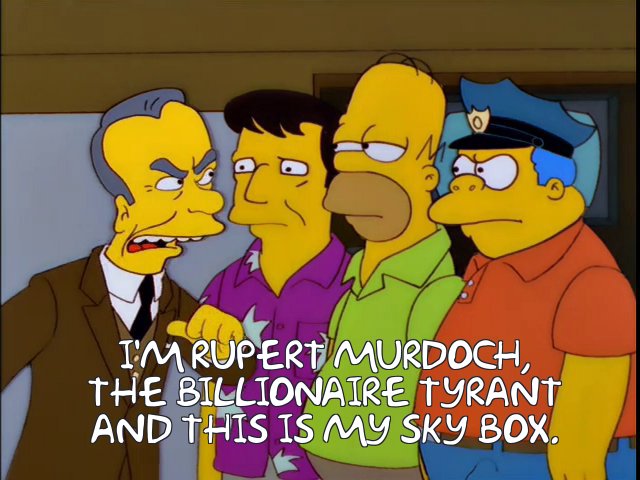
Media and Society –
Media Ownership and structure –
- A large bussiness or company, a combination of multiple bussiness entitles operating in entirely different industries under one main group/ bussiness.
- ISA – Althuser
- Murdochs large influence over politicaians allowed him to create a monopoly over tabloids and news BskyB, in a way this could be linked to manufacturing consent as under Thatcher monopolies were illegal, however, due to Murdoch and how his support would benefit her she allowed him to control a lot of the print media in Britain.
- Horizontal Integration – Murdoch purchasing his sons rapping organisation.
- Globalisation (in terms of media ownership) – Media globalisation is the combination of media through the cross-cultural exchange of ideas.
- Vertical Integration – A larger company/ conglomerate that aquires a smaller company in the same industry.
- Horizontal Integration – The aquisition of a bussiness/ company which is operating at the same level of value as the bussiness/ company/ chain in a similar or different industry.
- Media Regulation – Murdoch was only allowed to own 39% of Sky, though he had 100% control over print media such as the Sun. The priminister could be seen as a gatekeeper as they control what is allowed and what isnt such as Thatcher allowing Murdoch to have a monopoly, she regulated that decision.
- Media Power and Control – Chomskys 5 filters, larger companies with more power can restrict smaller companies – Flack – manufacturing consent. such as in Bombshell where Fox News International, was able to control its smaller subsidaries.
- 1 – Ownership – Profit- Critical Journalism – Serves the Conglomerate – Megan Kelly interview with trump Bombshell
- 2 – Advertisement – Pay for audiences, media outlets ‘sell’ audiences to advertisers, without viewers there would be no profit
- Flack – when a story is inconvenient for the organisation, when Megan opposed Trump and Roger she was immediately rejected
- Media Powers and Control – Murdoch forced Tony B to leave EU show the power he had over politicians and ultimately the country
- Media working practices – had a big influence on new labour party (1997), his newspapers promoted Tony B, the fact that Murdochs organisation used bribes o get information out of the police yet they weren’t prosecuted.
Is Murdoch dead yet?
Is Rupert Murdoch Dead? Sadly, no. As of 09/04/2020 he is very much alive.
